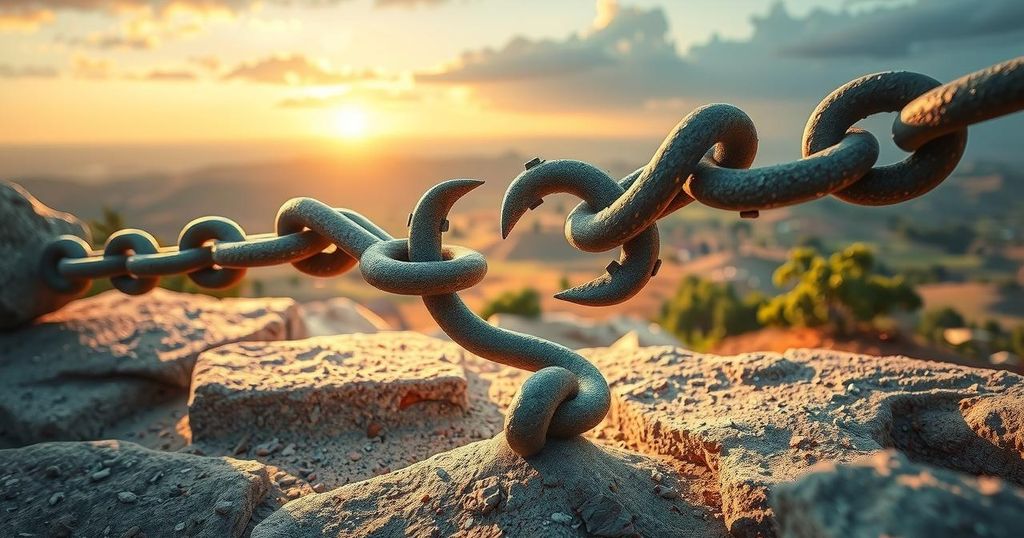Drastic Escalation in the DRC-Rwanda Conflict: A Looming Humanitarian Crisis

The conflict between the DRC and Rwanda is escalating, with the M23 rebel group seizing Goma amid accusations of corruption and resource exploitation. International calls for Rwandan withdrawal have emerged as the humanitarian crisis worsens. A ceasefire has been negotiated, but lasting solutions are needed to address the underlying issues driving the conflict.
The escalating conflict between the Democratic Republic of the Congo (DRC) and Rwanda signifies a dire situation in Africa, with the M23 rebel group recently seizing Goma in eastern DRC. The international community is alarmed, with calls for Rwandan forces to withdraw immediately, while South Africa warns further Rwandan aggression would be viewed as a declaration of war. Amidst accusations of corruption and inability to control the military, the DRC struggles with internal tensions and external threats.
The crisis is fueled by a struggle over rare minerals essential for technology, with both nations leveraging historical grievances from the Rwandan genocide. Rwanda insists it is combating Hutu extremists sheltering in eastern Congo, while DRC claims Rwanda seeks to exploit its mineral wealth through the M23 group, its Tutsi-led proxy. The resulting conflict has displaced eight million people, contributing further to human suffering.
As the situation deteriorates, critics argue that international condemnation of Rwanda overlooks DRC’s corrupt leadership, with President Félix Tshisekedi refusing peace negotiations resulting in significant territorial losses. The DRC military, plagued by low morale and inadequate compensation compared to foreign mercenaries, has faced challenges in stopping the M23 advance. This ongoing violence has resulted in rampant plundering and lawlessness, with reports of rape and violence rampant in affected areas.
In the face of international pressure, a temporary ceasefire was established between M23 and DRC forces; however, analysts maintain that this is an insufficient step toward resolution. Sustainable solutions addressing the underlying causes of the conflict are necessary, as regional tensions and political instability continue to escalate. The ultimate goal should be to establish lasting peace and security in the region, mitigating the humanitarian crisis impacting millions.
The conflict between the DRC and Rwanda is characterized by a complex history of violence marked by the 1994 Rwandan genocide and ongoing struggles over valuable mineral resources. The M23 rebel group, backed by Rwanda, has significantly destabilized eastern DRC, prompting concerns of renewed full-scale war. As various international powers weigh in, the need for a coordinated response that addresses both humanitarian and geopolitical concerns has become more urgent.
The conflict between the DRC and Rwanda reflects deep-seated historical grievances and ongoing power struggles exacerbated by the fight for mineral resources. Despite a temporary ceasefire, the situation remains precarious, with millions affected by violence and displacement. Addressing the root causes of the conflict through negotiation and reform is essential for ensuring long-term peace in the region.
Original Source: theweek.com






